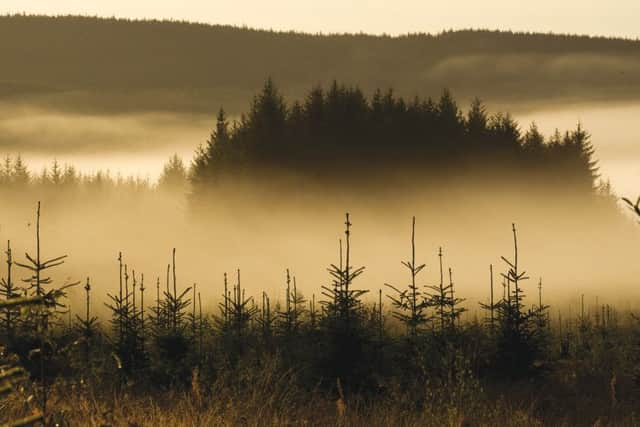Why Scotland is planting 60,000 trees a day – Fergus Ewing
Scotland’s rich history and culture have forests and woodlands right at their core.
Our ancient tales speak of the vast Caledonian forest, home to heroes and legends.
Advertisement
Hide AdAdvertisement
Hide AdIn the 1940s, Nan Shepherd, in her gem of landscape writing, “The Living Mountain”, observed how felling and regrowth in the forests of the Cairngorms marched with the history of the great wars of the 19th and 20th centuries.


Trees have enriched our landscape since before history; but their importance has never been greater than right now.
The First Minister has rightly declared a global climate emergency and the Scottish Government has set out its commitment to respond to this.
An emergency of this gravity needs an emphatic response, one that will involve increasing the size of our forests and woodlands so that more greenhouse gases are absorbed.
We are off to a good start. I recently welcomed figures which demonstrated that we are now exceeding our national planting targets. In the past year, 11,200 hectares of new woodland have been planted in Scotland. That’s an incredible 22 million new trees – 60,273 a day!
This is fantastic news and, with Scotland planting around 84 per cent of all new woodland in the UK – and 40 per cent of that being native broadleaves – we can all be proud of what is being achieved.
It is clear that forests and woodlands generate multiple benefits. They contribute £1 billion a year to our rural economy, support 25,000 jobs, sustain and enhance biodiversity and our most iconic species, and enrich the lives of millions by improving the health and well-being of forest visitors.
But perhaps their greatest benefit is their unique and vital role in tackling climate change. Never has the planting of trees been so critical.
Advertisement
Hide AdAdvertisement
Hide AdAlready, Scotland’s forests are a huge carbon sink, absorbing 9.5 million tonnes of carbon dioxide each year.
This will only increase as we raise our planting targets – reaching 15,000 hectares a year in 2025 – and seek to increase the level of woodland cover from 19 to 21 per cent by 2032.
Achieving our planting targets will continue to be a shared national endeavour. Successfully smashing this year’s target is largely down to private woodland managers who have done the bulk of the planting and I applaud their efforts.
However, smaller forestry businesses have also played their part; in the past year, over 80 per cent of the woodland creation schemes given financial support by the Scottish Government have been 50 hectares or smaller.
I feel proud that the Scottish Government has also planted its own trees through its agency, Forestry and Land Scotland, which beat its own internal target and contributed 1,000 hectares of new planting on Scotland’s national forests and land.
This rise in woodland planting has not happened by chance. The Scottish Government has made forestry a priority.
Forestry grants have been streamlined, comprehensive reviews of applications undertaken and investment has been put in place to provide confidence for the sector. This has generated an enthusiasm for tree planting that I want to see continue.
The Scottish Government is providing the support to ensure that land managers can continue to plant the right trees in the right locations, whether they are established foresters, land managers keen to developing agri-forestry options on marginal farming land, or community groups or organisations looking to help make a difference.
Advertisement
Hide AdAdvertisement
Hide AdThis partnership approach to integrated land management is fundamental to our success and to achieving our future ambitions – and it has been noticed by other UK administrations that are keen to learn from our success.
The Welsh Environment Minister has visited Scotland to see our work and earlier this month my ministerial colleague, Mairi Gougeon, was invited to speak in Ireland on our woodland expansion progress. In return, we are expecting Irish officials to visit Scotland later this year.
Of course, I would be more than happy to welcome my Westminster counterparts to Scotland to help them increase their woodland planting, too.
Now is the time for forestry to step up and truly come in to its own. In facing this climate emergency, it is vital that everyone focuses their efforts in the same direction and I am immensely proud that Scotland is leading the way.
Fergus Ewing is Cabinet Secretary for Rural Economy and SNP MSP for Inverness and Nairn.